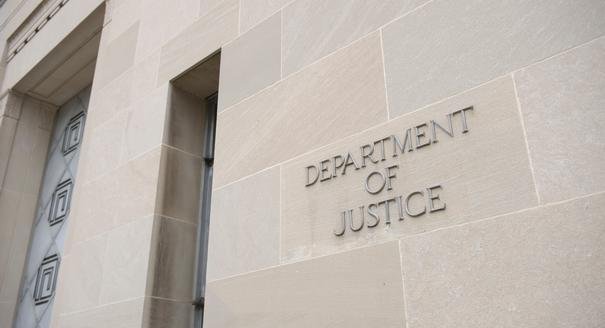Apple's complex saga involving data encryption, civil liberties and national security took yet another twist on Friday when the U.S. Department of Justice weighed in, filing a motion attempting to compel the iPhone maker to create a backdoor to unlock a secured iPhone.
The DOJ has asked a federal judge to compel Apple to help the FBI in its investigation of the San Bernardino, Calif., terrorist attack in December that resulted in 16 deaths and another 24 injuries. Friday's filing was first revealed by ABC News.
"Rather than assist the effort to fully investigate a deadly terrorist attack by obeying this court's order of February 16, 2016, Apple has responded by publicly repudiating that order," the DOJ filing states.
"Rather than assist the effort to fully investigate a deadly terrorist attack by obeying this court's order of February 16, 2016, Apple has responded by publicly repudiating that order." - U.S. Department of Justice
The DOJ went on to say that Apple's refusal to cooperate is "based on its concern for its business model and public brand marketing strategy."
Prior to the DOJ filing, Apple was already at odds with a U.S. magistrate judge, who ordered the company to comply with government requests to help extract data from an iPhone 5c. That handset was owned by one of the shooters involved in the San Bernardino terrorist attack, and it is password protected via Apple's iOS 9 mobile operating system.
Thus far, Apple has rejected requests from the FBI to build a "backdoor" to its iOS platform in order to unlock the handset. In an open letter published earlier this week, CEO Tim Cook said the creation of a backdoor tool to access a locked iPhone would set a dangerous precedent, and potentially lead to major security issues for mobile devices.
"The FBI wants us to make a new version of the iPhone operating system, circumventing several important security features, and install it on an iPhone recovered during the investigation," Cook wrote. "In the wrong hands, this software — which does not exist today — would have the potential to unlock any iPhone in someone's physical possession."
The Justice Department's support of the FBI comes as no surprise — this week the White House said the FBI simply wants access to just one iPhone, and not blanket backdoor access to all iOS devices. But in Cook's view, "there is no way to guarantee such control."
Apple has until Feb. 26 to respond to the U.S. magistrate judge's ruling with a filing in court.
 Neil Hughes
Neil Hughes







-m.jpg)






 Christine McKee
Christine McKee
 Wesley Hilliard
Wesley Hilliard
 Malcolm Owen
Malcolm Owen
 Andrew Orr
Andrew Orr
 William Gallagher
William Gallagher
 Sponsored Content
Sponsored Content









127 Comments
The DOJ is one of the most corrupt departments in the government today, and that's saying a lot.
Pound sand, Lynch.
Tim is Shaking in his boots (Not).
One phone = Precedent = All phones/devices no longer private.
No privacy = No liberty (Give me Liberty or give me Death)
Apple has taken the correct position on this issue.
Apple is too big to fail = They will prevail.
When the government - regardless of which herd of useless hacks is in charge - acts like our rights and needs count for anything more than funding Pentagon pimps and corporate weevils, I'll investigate self-restraint. Until then, the DOJ can stick their concerns where the sun don't shine.
Minor detail: the 5c was owned by the San Bernardino County Dept. of Health. It was a work phone which is why I expect when the murderers crushed their own cellphones and didn't bother with this one.
The DoJ couldn't care less about sanitary inspection reports, they're after a masterkey and a precedent.
So they filed another whine with Pym? Like she needs encouragement. She didn't even request input from Apple before rubber stamping the original DoJ request for a masterkey software kit.
On this issue I would not trust the US or Canadian government